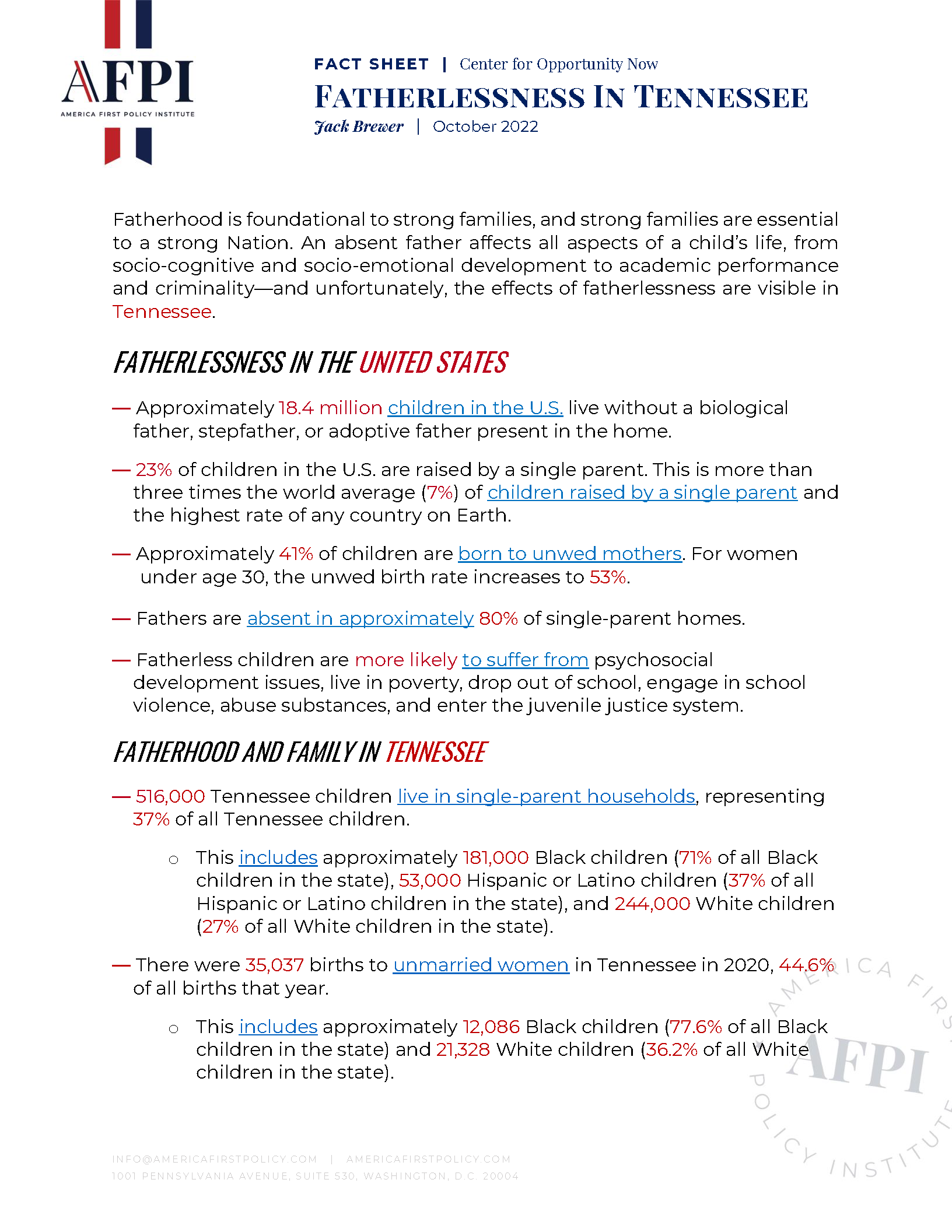Fatherlessness In Tennessee
Fatherhood is foundational to strong families, and strong families are essential to a strong Nation. An absent father affects all aspects of a child’s life, from socio-cognitive and socio-emotional development to academic performance and criminality—and unfortunately, the effects of fatherlessness are visible in Tennessee.
FATHERLESSNESS IN THE UNITED STATES
— Approximately 18.4 million children in the U.S. live without a biological father, stepfather, or adoptive father present in the home.
— 23% of children in the U.S. are raised by a single parent. This is more than three times the world average (7%) of children raised by a single parent and the highest rate of any country on Earth.
— Approximately 41% of children are born to unwed mothers. For women under age 30, the unwed birth rate increases to 53%.
— Fathers are absent in approximately 80% of single-parent homes.
— Fatherless children are more likely to suffer from psychosocial development issues, live in poverty, drop out of school, engage in school violence, abuse substances, and enter the juvenile justice system.
FATHERHOOD AND FAMILY IN TENNESSEE
— 516,000 Tennessee children live in single-parent households, representing 37% of all Tennessee children.
- This includes approximately 181,000 Black children (71% of all Black children in the state), 53,000 Hispanic or Latino children (37% of all Hispanic or Latino children in the state), and 244,000 White children (27% of all White children in the state).
— There were 35,037 births to unmarried women in Tennessee in 2020, 44.6% of all births that year.
- This includes approximately 12,086 Black children (77.6% of all Black children in the state) and 21,328 White children (36.2% of all White children in the state).
— There are about 4,826 teen births in Tennessee per year.
— There were 22,359 recorded divorces in Tennessee in 2020.
— 8,502 children reside in foster care in Tennessee.
EDUCATIONAL OUTCOMES IN TENNESSEE
— 65% of Tennessee 4th-graders scored “below proficient” in reading for their class level.
— 69% of Tennessee 8th-graders scored “below proficient” in mathematics for their class level.
— 26% of Tennessee 4th-graders are considered “chronically absent” from school.
PUBLIC ASSISTANCE IN TENNESSEE
— 451,452 children receive free or reduced-price lunch in Tennessee, 46.7% of all children.
— 107,394 infants and children are receiving WIC benefits in Tennessee, 26.4% of all children.
— There are approximately 272,337 Tennessee children living in poverty, which is about 18.4% of all Tennessee children.
